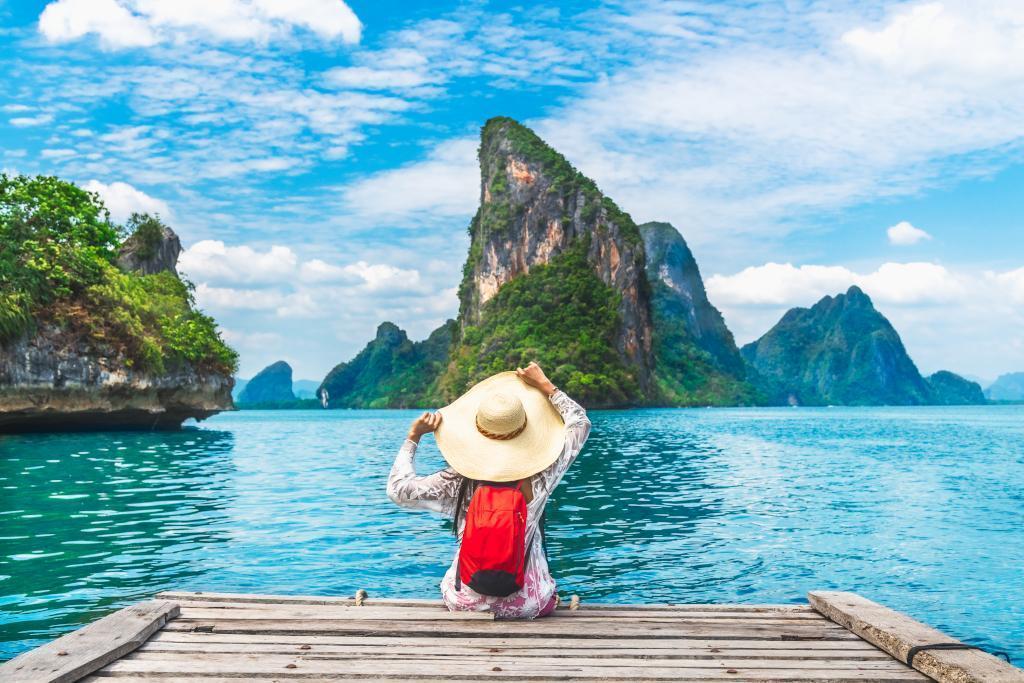Specialist Tips for Enhancing Your Traveling Experience With Sustainable Tourist Practices
In the world of traveling, the expanding pattern in the direction of lasting tourism methods is reshaping the way individuals explore the world. From making educated selections concerning holiday accommodations to proactively sustaining conservation efforts, each step taken towards sustainable tourist holds the assurance of an extra meeting and impactful trip.
Selecting Eco-Friendly Accommodations
When choosing accommodations for your travels, prioritizing eco-friendly alternatives can dramatically minimize your environmental influence. Choosing green holiday accommodations includes choosing resorts, hotels, or lodges that have implemented lasting methods to decrease their carbon impact and shield the surrounding community. These holiday accommodations usually use sustainable power resources, execute water-saving efforts, and promote recycling and waste decrease. By remaining in green facilities, travelers can sustain companies that focus on sustainability and add to the conservation of natural sources.
In addition, environmentally friendly lodgings regularly provide one-of-a-kind experiences that allow guests to attach with nature and learn regarding neighborhood preservation efforts. Numerous green homes are positioned in stunning natural settings, providing opportunities for activities such as walking, wild animals monitoring, and social immersion. These experiences not only improve the total traveling experience but also promote a much deeper admiration for the environment.

Supporting Local Preservation Initiatives
Local conservation efforts profit substantially from the support of environmentally conscious vacationers that are passionate about maintaining the natural charm and biodiversity of the regions they see. By actively taking part in and sustaining regional conservation campaigns, tourists can play an essential role in shielding threatened species, breakable environments, and cultural heritage websites. One way to sustain these efforts is by taking part in community-based conservation projects, such as wild animals monitoring programs or environment remediation tasks. Additionally, vacationers can contribute straight to conservation companies or initiatives that function towards protecting the environment and promoting lasting practices within the area.
By respecting traditional expertise and techniques, vacationers can assist equip local stakeholders in their conservation undertakings. Picking excursion operators and accommodations that prioritize ecological sustainability and contribute to conservation tasks can make a substantial distinction in protecting the natural sources and wildlife of the destination.
Decreasing Single-Use Plastics
Lessening making use of single-use plastics is a vital aspect of lasting tourist practices that intends to minimize environmental influence and advertise conservation initiatives. Single-use plastics, such as straws, water bottles, and plastic bags, add dramatically to contamination in seas, hurting marine life and ecological communities. To address this issue, tourists can take easy yet impactful actions to decrease their plastic impact while checking out brand-new destinations.
One reliable method to lessen single-use plastics is by bringing multiple-use items such as water containers, bags, and utensils. By selecting durable, green alternatives, vacationers can avoid adding to the expanding plastic waste dilemma. In addition, choosing lodgings and dining establishments that provide plastic-free alternatives can even more sustain lasting practices. Participating in coastline clean-up activities or joining neighborhood initiatives devoted to lowering plastic pollution are likewise useful means for travelers to actively add to preservation initiatives during their trips.
Via mindful actions and conscious choices, travelers can play a significant role in preserving the environment and fostering a more lasting approach to tourist. By decreasing single-use plastics, people can make a favorable effect and assistance safeguard the world for future generations.
Engaging in Responsible Wild Animals Tourist
Involving fairly with wildlife in tourist locations is extremely straight from the source important for advertising preservation and appreciating the natural environments of pets - travel. Accountable wildlife tourist entails activities that prioritize the well-being of the animals and the preservation of their native environment. To engage properly with wildlife, vacationers ought to pick reliable tour operators and shelters that prioritize pet welfare over home entertainment. Avoiding tasks that entail direct call with wild pets, such as elephant rides or tiger stroking, is crucial as these techniques commonly include exploitation and cruelty.

Joining Community-Based Tourist
Joining community-based tourism offers vacationers a special chance to immerse themselves in local societies and support sustainable growth efforts. travel. By engaging with local areas, tourists can gain genuine understandings into the practices, custom-mades, and ways of life of the location. This type of tourism encourages regional homeowners by including them in the tourist industry, developing economic possibilities, and preserving their social heritage
Community-based tourist likewise promotes ecological preservation and fosters a feeling of responsibility in the direction of natural sources. Tourists can participate in green activities, such as tree growing, beach clean-ups, or wild animals monitoring, adding to the preservation of the destination's ecosystems. Remaining in locally-owned accommodations and eating at family-run dining establishments helps to disperse tourist revenue a lot more equitably amongst community members.

Conclusion
Finally, incorporating sustainable tourism practices right into your traveling experience can favorably influence the environment, local communities, and wild animals. By picking green holiday accommodations, sustaining preservation efforts, reducing single-use plastics, taking part in responsible wild animals tourist, and joining community-based tourism, travelers can these details add to the preservation of natural deposits and cultural heritage. It is vital for travelers to be conscious of their influence and make mindful choices to advertise lasting tourism practices for an extra ethical and liable travel experience.
From making informed selections regarding accommodations to proactively supporting conservation initiatives, each step taken in the direction of sustainable tourism holds the assurance of a much more fulfilling and impactful trip. travel.
Reducing the usage of single-use plastics is an important element of lasting tourism techniques that aims to reduce ecological impact and advertise conservation initiatives. Additionally, enlightening oneself about the neighborhood wildlife, their actions, and the risks they encounter can improve the total wildlife tourist experience.Community-based tourism likewise advertises environmental preservation and cultivates a feeling of responsibility in the direction of natural resources. By picking green holiday accommodations, supporting conservation efforts, decreasing single-use plastics, engaging in liable wildlife tourism, and getting involved in community-based tourism, tourists can add to the conservation of natural sources and social heritage.